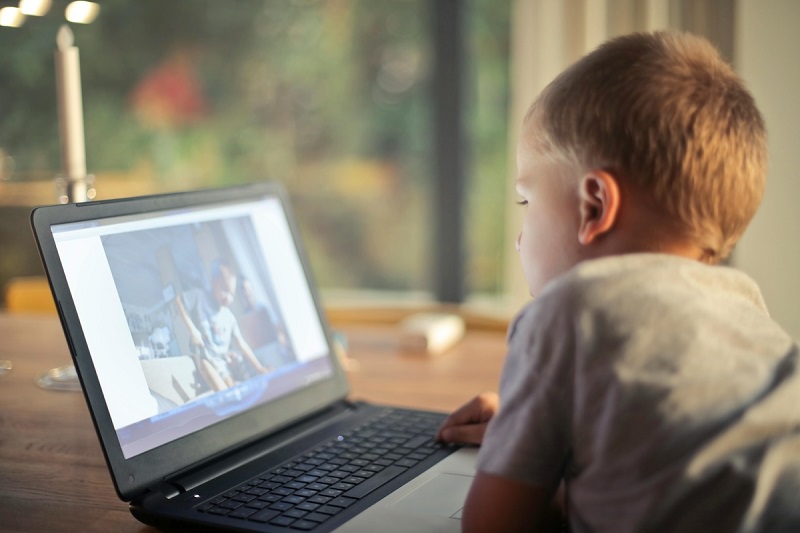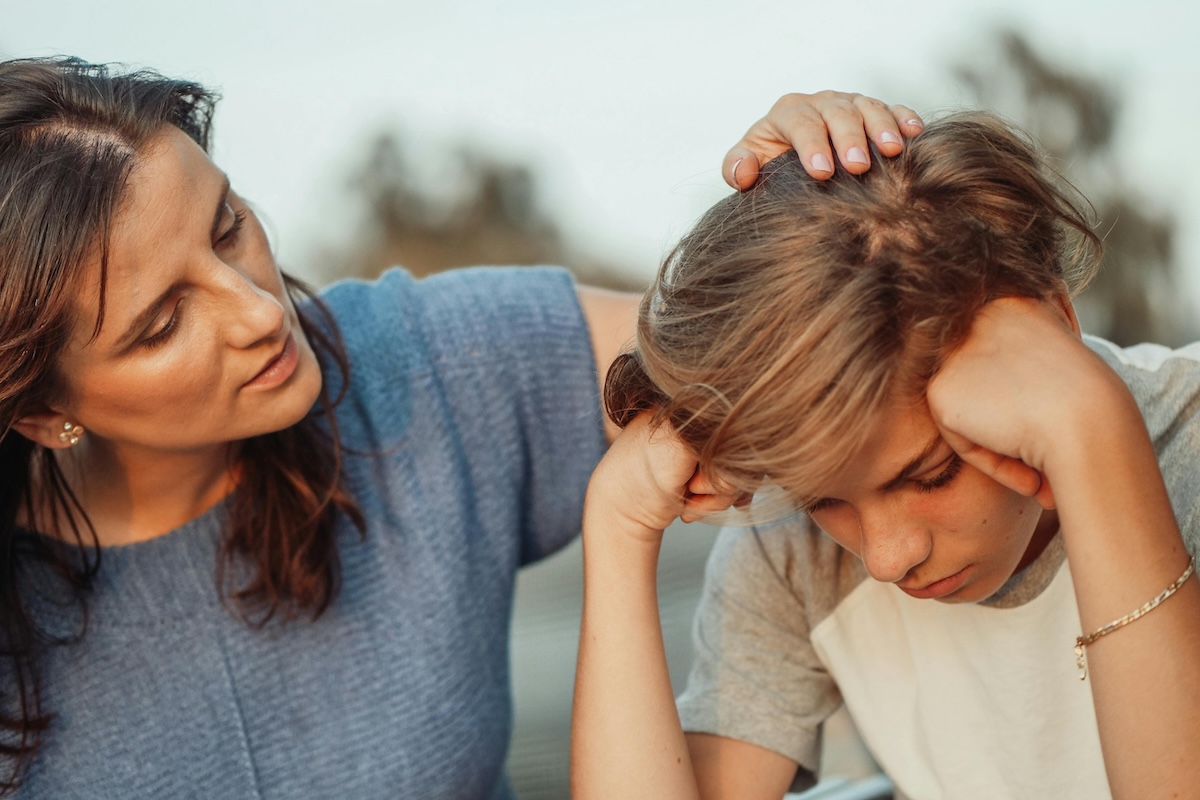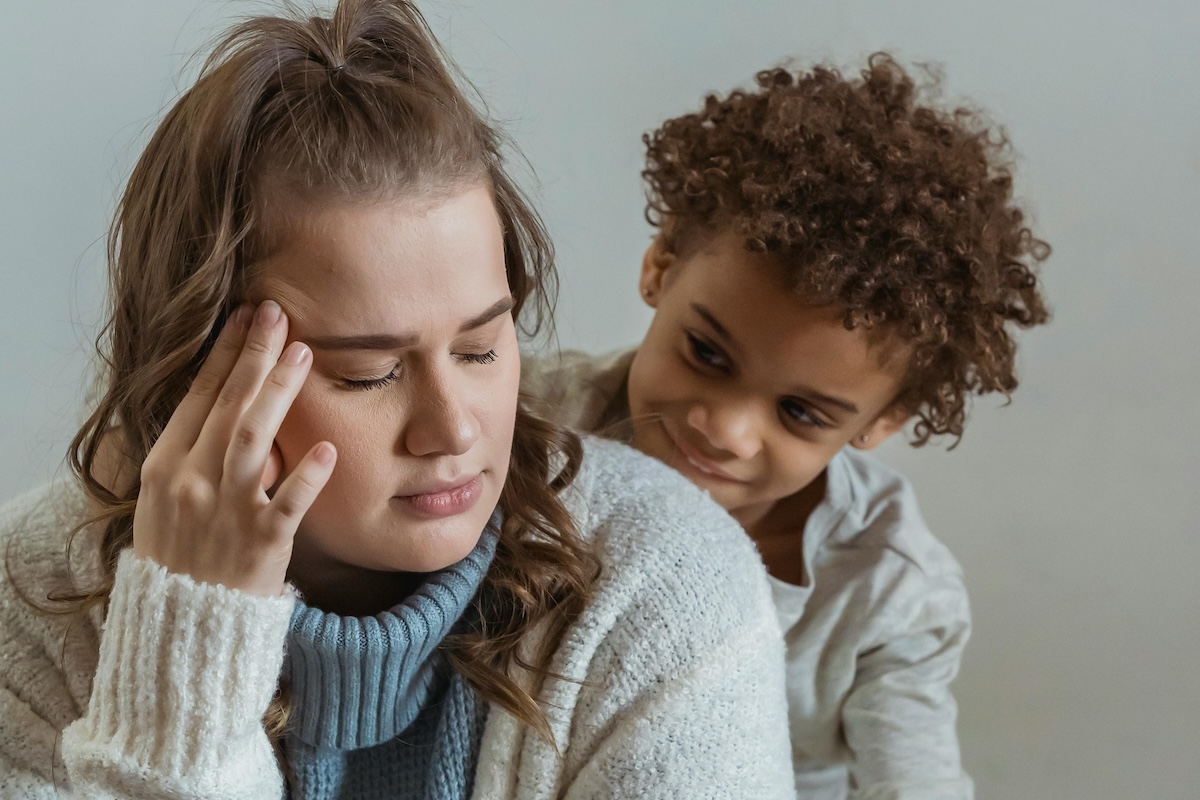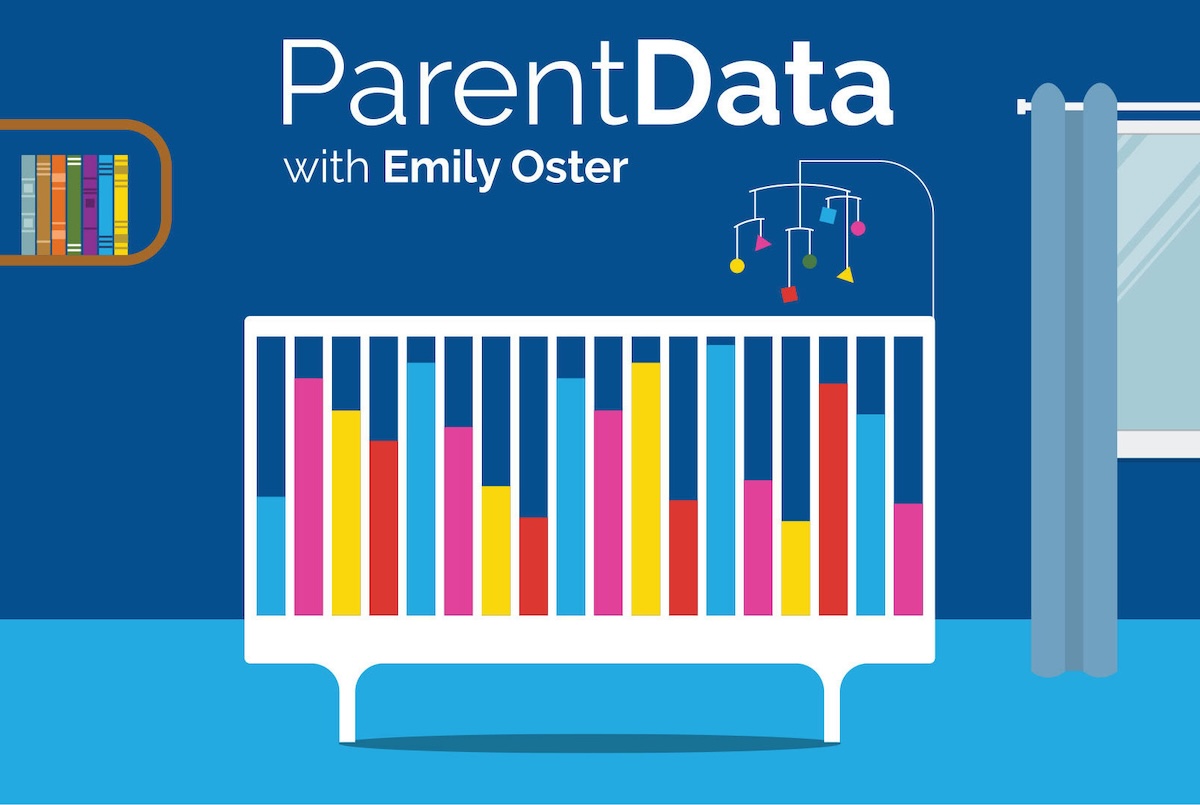Using booster seats in cars. Locking up the liquor cabinet. Putting on sunscreen before heading outside.
There are many things that parents and caregivers do today to protect their kids that weren’t standard practice a generation or two ago.
As a health educator, I think it’s time to add another item to that list: talking to your kids about online pornography. Common Sense Media recently surveyed over 1,300 teens from across the U.S. about their experiences with online porn. Here’s what researchers found:
- 73% of teens surveyed said they have watched porn, either accidentally or on purpose.
- The average age when they started viewing online porn was 12.
- Most (54%) said that they first saw online porn when they were 13 or younger, and 15% said they had seen porn before they turned 11.

What this tells me is that we need to have these conversations earlier than we might think. The reality is that if your kid has access to the internet, there’s a strong probability that they will see porn.
The good news is that there’s a lot you can do to help them navigate this terrain, and if you can stay calm and curious, talking about this topic can help bring you closer to your kids — and ensure that those lines of communication stay open through the teen years.
You need to get ahead of this
Human beings are naturally interested in sex and sexuality, and seem to like to depict it. People have shared erotic images and words with each other since the days of cave paintings, via sculptures, drawings, postcards, books, poems, magazines, films, VHS tapes, and DVDs. Sometimes these materials have been labeled as art, while at other times they’ve been called erotica or pornography.
When young people say the word “porn” today, however, there’s no mystery about what they mean. They are almost always talking about what’s available on streaming “tube” sites — giant collections of explicit scenes, organized for quick clicking and viewing. Imagine YouTube with much more exposed flesh.
These sites are available to anyone with access to a smartphone, tablet, or laptop. They usually don’t require a log-in or any real proof that the viewer is over 18. Young people who land on one of these sites can start watching immediately.
I suggest thinking strategically and approaching conversations about porn in three stages:
- With young kids: Focus on helping them avoid porn, and letting them know they should come to you if they see it — and they won’t be in trouble.
- With tweens/young teens: Talk about porn as something they will likely encounter, so they will be prepared when they see it, and they can come to you for support if they need it. At the same time, provide access to high-quality sexuality education materials to help answer questions and decrease shame and anxiety.
- With older teens/young adults: Use conversations about porn as a springboard to talk about sexuality, healthy relationships, values, and consent. Use topics in the news, like students sharing deepfake nudes of classmates, to encourage critical thinking about sexual ethics.
First: Get clear on your own values
Before talking to your children about any aspect of sexuality, it’s important to clarify your own beliefs and values.
Personally, I view sexuality as a wonderful and important part of being human, and try to emphasize consent and clear communication. That’s why I’m a big proponent of comprehensive sex education in schools, and why I encourage parents to get comfortable talking about sexuality at home.
Decades of research shows that comprehensive sex ed has myriad positive benefits, including preventing child sex abuse, reducing dating violence, and helping young people develop healthy relationships.
Sometimes parents worry that talking about sex will “give kids ideas,” but this is not borne out by data: indeed, participating in comprehensive sex education courses has been shown to delay the onset of sexual activity and reduce sexual risk behaviors.
It’s important to me to weave messages of LGBTQ+ affirmation into conversations about sex, because I want my children to know I love and accept them for who they are (and that kind of acceptance has a huge protective effect for children). I also look for inclusive resources, because I know that when sex education leaves out LGBTQ+ youth, they sometimes turn to porn for information.
Studies say that most American adults watch porn. I don’t have any real moral issues with adults making or viewing pornography, especially if it is made ethically and consensually. I do, however, have a problem with kids seeing things online that they aren’t ready for or won’t know how to process. I don’t want anyone to have to see violent or explicit material against their will or by surprise. Your own views may differ from mine, and that’s totally fine — you just want to have examined them a bit before you start sharing them with your kids.
When adults have thought clearly about their own beliefs, it makes it easier to talk about these issues without shame or embarrassment.
What to say to young children
How you talk about bodies, relationships, and sexuality can have a profound effect on your children. As much as possible, try to keep shame and embarrassment at bay. By staying relaxed and “askable,” you increase the likelihood that your child will trust you and continue to come to you with questions and for advice as they get older.
To help families, Common Sense Media also shares suggestions about how to block porn from children’s devices and provides a tip sheet called “What to Do If Your Young Child Sees Pornography.”
If you do find your child looking at porn, try to avoid judgmental questions like these:
- “Why were you watching that?”
- “I can’t believe you would do that! What were you thinking?”
- “Aren’t you ashamed of yourself?”
It may be hard, but try to stay connected so that the space for learning and discussion stays open. Reassure them that they didn’t do anything wrong, and ask questions that show you care, like:
- “How do you feel about what you saw?”
- “Was there something you were trying to learn about?”
- “Is there something I can help you understand?”
You may want to introduce them to age-appropriate resources. The organization Sex Positive Families has an amazing database of vetted books, videos, and online materials that’s searchable by topic, age, and type. It’s a great place to find just what you and your kids need.
What to say to tweens and teens
As kids get older, they need more sophisticated information. That’s reflected in the tips Common Sense Media provides for talking to tweens and teens, which includes scripts for five mini-conversations parents might have, and advice on how to keep the lines of communication open.
I know many parents worry about having this talk, but the good news is that it doesn’t have to be an intense conversation where you sit your child down and say, “Today we’re going to talk all about porn.” Instead, try to have open and ongoing discussions, and look for openings to bring things up at various points in their development. Here’s a script you can use:
“I want to check in with you about something. I was doing some reading, and it sounds like a lot of people your age are seeing porn — pictures or videos of people doing sexual things. I wanted you to know something about it in case you see it…”
If that seems like too much to take on by yourself, you might seek support from Sex Positive Families, which hosts interactive, online media and porn literacy workshops for parents and young people (ages 9 to 15) to attend together. These workshops are designed to “help your family have shame-free talks about sexualized media and porn.”
Amaze.org also has resources to help parents discuss porn with youth, including talking tips, suggestions about how to start the porn conversation, and sample language for key messages. The site has a whole library of free animated videos for tweens and teens to help them understand topics related to puberty, sexuality, and relationships. Two in particular focus on porn: “Porn Is Not Sex Ed” and “Porn: Fact or Fiction.”
Talking about this can keep kids safe
Having frank conversations can help reduce the risk that young people will experience permanent harm by acting out risky behaviors they see in porn. That’s a point emphasized by Peggy Orenstein in her viral New York Times essay “The Troubling Trend in Teenage Sex.” In it, she writes about the increasing number of young women who report being choked during sex, often without consent or prior discussion: “As with anything else, repeat exposure can render the once appalling appealing. It’s not uncommon for behaviors to be normalized in porn, move within a few years to mainstream media, then, in what may become a feedback loop, be adopted in the bedroom or the dorm room.”
One way you can empower teens is to teach them media literacy skills, which they can use when they encounter sexually explicit material. This encourages critical thinking and reflection. Here’s a set of basic questions that youth can use to analyze media:
- What are the creators trying to make the viewer feel?
- What techniques are used to keep the viewer’s/listener’s attention?
- What does the creator want the viewer to think when they watch this?
- What values and points of view are represented? What is left out?
- Why was this media created?
- Who created/produced this?
- Who profits from this?
- Was the production and sharing of this media consensual?
Another strategy I like to use to encourage empathy and reflection is to put teens in the role of giving advice, with questions like this:
“If you found out that someone who is two years younger than you was watching porn, what would you want them to know about it?”
The bottom line
Many parents feel some trepidation about bringing up topics like pornography with their kids. It can feel intimidating, uncomfortable, and scary. But by pushing past the awkwardness, you are making it possible to have ongoing talks about sensitive topics. You are letting your kids know that you won’t let shame or embarrassment get in the way of important conversations, and that they can come to you with their real questions and concerns.
Being able to talk openly about issues like romance, desire, consent, and sex is an important part of what sociologists call “sexual citizenship,” and the way you talk about porn with the kids in your life can do a lot to encourage this openness.
These are skills your kids can use in their lives as they get older, when they are talking to partners or possibly raising kids of their own. You are taking steps to help raise people who are empathetic, caring, and who think critically about what they see in the world.
It’s worth a few minutes of awkwardness.
Community Guidelines
















Log in
This barely touches on what I see as the biggest problem with pornography, the deep misogyny of it!
A GLARING omission from this article is discussing the prevalence of pornography that is made in an environment of coercion, desperation, and sex trafficking, and how likely it is that a casual consumer of pornography will unknowingly watch something that falls into this category.
I think that the results of what you are talking about actually is addressed in the section where the author discusses empowering teens with media literacy skills. Of particular note, the question, “Was the production and sharing of this media consensual?” addresses the consent element of the production of the media in question. I think broadening the subject to media in general rather than just about pornography can be helpful, as it can be used to address wider issues of consent and media production, like filming strangers for social media content.